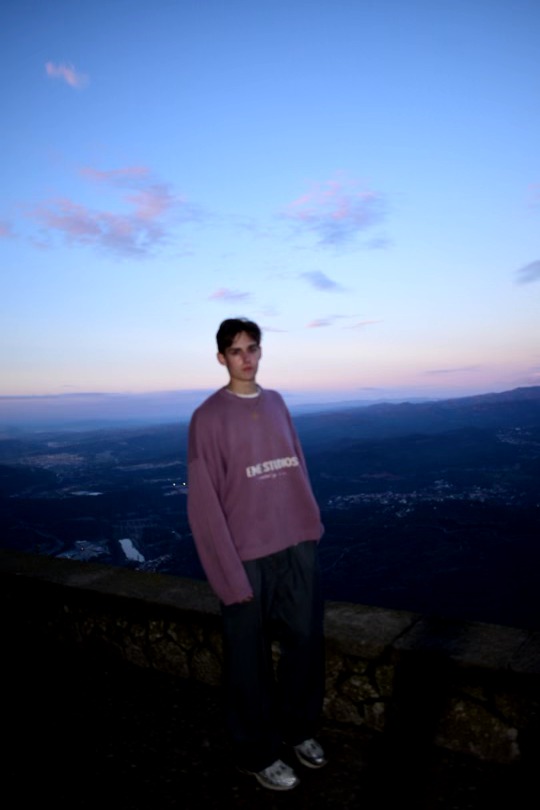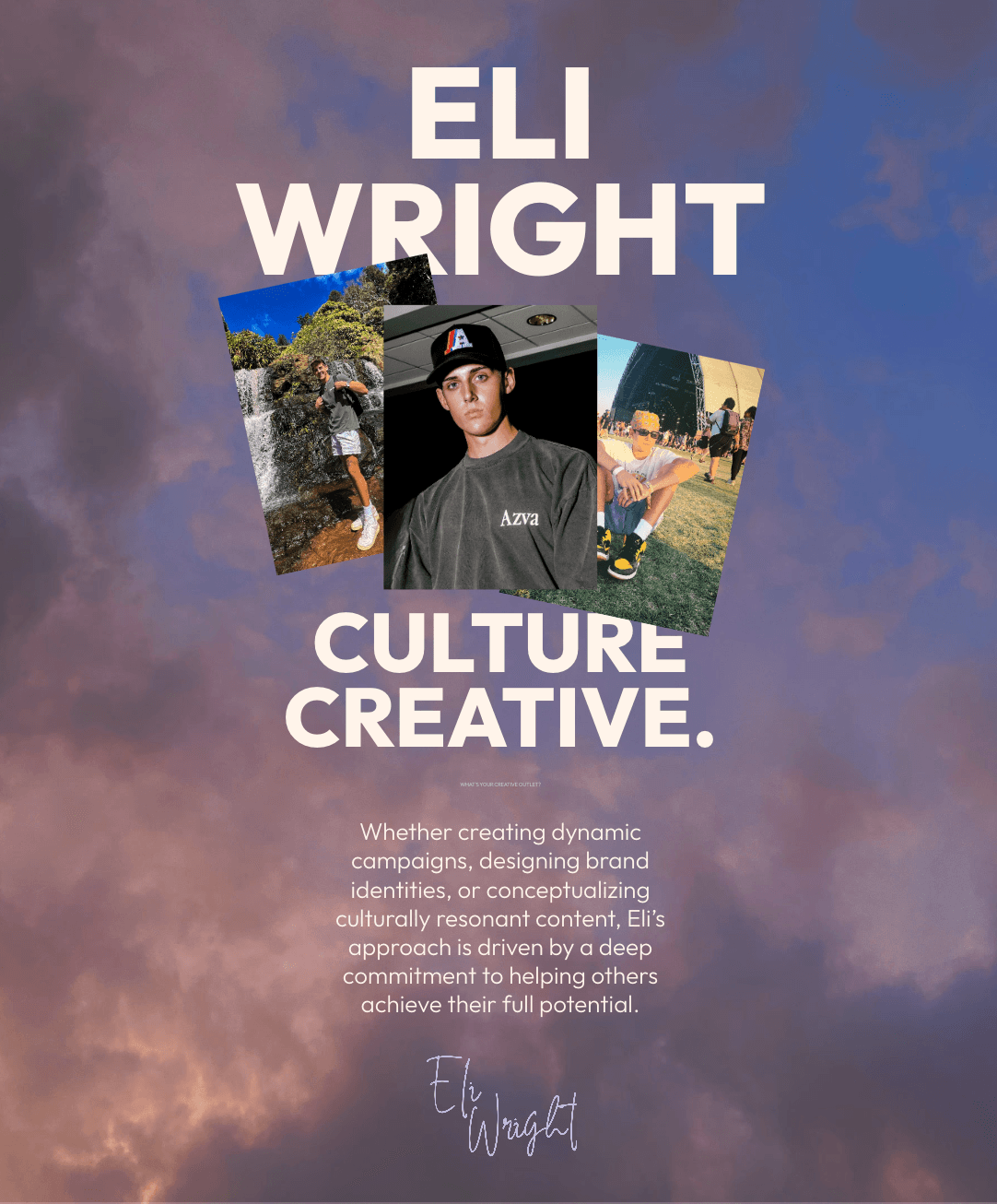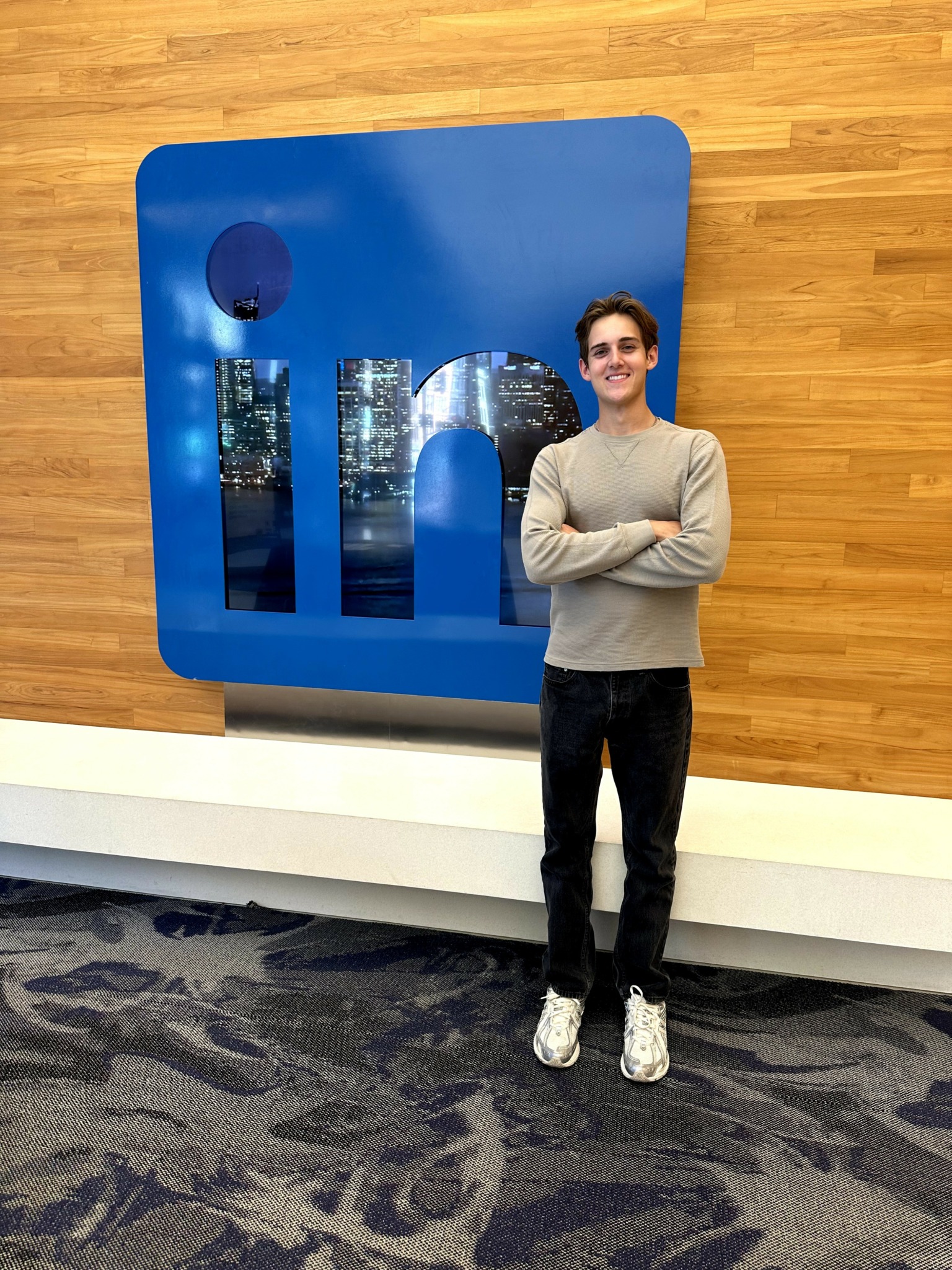We caught up with the brilliant and insightful Eli Wright a few weeks ago and have shared our conversation below.
Eli, thanks for joining us, excited to have you contributing your stories and insights. What do you think matters most in terms of achieving success?
Success, to me, is less about the outcome and more about alignment—living in sync with your values, your curiosity, and your sense of purpose. It’s easy to get caught chasing external validation: money, status, recognition. But the people who build something that lasts usually aren’t chasing— they’re creating from a place of clarity.
I learned this the hard way.
When I was 15, I launched my first brand with zero expectations—just a creative idea, some homemade merch, and an obsession with building community. I stayed up all night making videos, designing graphics, talking to followers, and iterating. It sold out in 24 hours. Not because I knew what I was doing—but because it was authentic, and I cared deeply. That experience showed me that people can feel when something is real. You can’t fake alignment.
Now, at Arcbound, whether I’m working with founders, shaping a brand, or building something myself, I always return to that: If the vision is clear, and the why is strong, success has a way of following.

As always, we appreciate you sharing your insights and we’ve got a few more questions for you, but before we get to all of that can you take a minute to introduce yourself and give our readers some of your back background and context?
I’m Eli Wright, a brand architect and creative director passionate about shaping culture through meaningful storytelling. I work at the intersection of branding, culture, and visual identity—helping founders, creatives, and thought leaders bring their personal brands to life in a way that feels intentional, aesthetically aligned, and culturally relevant.
My journey started in a small town in Southern Maine, where creativity was my escape. I was the kid editing videos, building communities online, and exploring creative outlets just to express myself. That turned into launching my first brand in the digitial space at a young age and later co-founding The Creator Collective—a platform that grew to nearly 800,000 followers and spotlighted underrepresented artists, fashion designers, musicians, and filmmakers through short-form storytelling. We helped brands like FashionNova, the NFL, and Taco Bell tap into Gen Z audiences before it was a buzzword.
Today, I help creative direction at Arcbound, a personal branding launchpad that works with world-class founders—from top tier executives, authors, podcasts hosts, to startup founders. My role is about building powerful foundations for individuals who want to tell their stories more effectively and show up with clarity. I help clients identify their core message, translate it into a compelling visual identity, and connect with their audience through design, social media, and cultural insight. I view brand visuals not as decoration—but as vehicles of meaning.
What sets my work apart is that it’s not about creating things that just look cool—it’s about making things that *mean* something. I’m constantly pulling from my understanding of culture, design, and narrative to make sure what we build doesn’t just exist—but resonates. I’m especially drawn to founder success stories, and helping people uncover what makes them different, then crafting their entire brand system around that.
I believe in building from the inside out, and everything I touch—whether it’s a video, a website, a campaign, or a brand—is rooted in that same philosophy.
What do you find most rewarding about being a creative?
For me, the most rewarding part of being a creative is turning something invisible into something tangible.
It’s the process of taking a feeling, a story, or an abstract idea—and shaping it into something people can see, feel, or connect with. Whether that’s through a visual identity, a piece of content, a campaign, or even a single line of copy, there’s nothing more fulfilling than building something that resonates with people and lives beyond you.
I also love when a client or collaborator sees themselves in a new light—when the work gives them clarity or confidence they didn’t have before. That moment of, “Yes, this is exactly who I am,” is powerful. Being the person that helps uncover and articulate that feels like a gift.
To me, creativity isn’t just about expression—it’s about translation. Helping someone translate their essence into something the world can understand and feel. That never gets old.

Are there any books, videos, essays or other resources that have significantly impacted your management and entrepreneurial thinking and philosophy?
My uncle gave me “Rich Dad Poor Dad” by Robert Kiyosaki when I was young, and from the moment I read it, it reshaped how I thought about everything—money, ownership, risk, and opportunity. It gave me a new lens on value and entrepreneurship, and it pushed me to start my first business and explore entrepreneurship at a young age. That early exposure to the mindset of creating rather than consuming laid the foundation for everything I’ve done since.
I’ve also been heavily inspired by Rick Rubin’s podcast and his book The Creative Act. His perspective on creativity—as something to be nurtured, not forced—reframed how I work. He speaks about originality not as something you chase, but something you uncover by staying present. That’s deeply shaped how I approach brand building, creative direction, and even how I manage my own process. I also draw a lot of inspiration from creatives like Colm Dillane, who consistently bring storytelling and cultural commentary into the design space in bold, experimental ways.
Contact Info:
- Website: https://eliwright.co/
- Instagram: https://www.instagram.com/eliwright
- Linkedin: https://www.linkedin.com/in/wrighteli/


